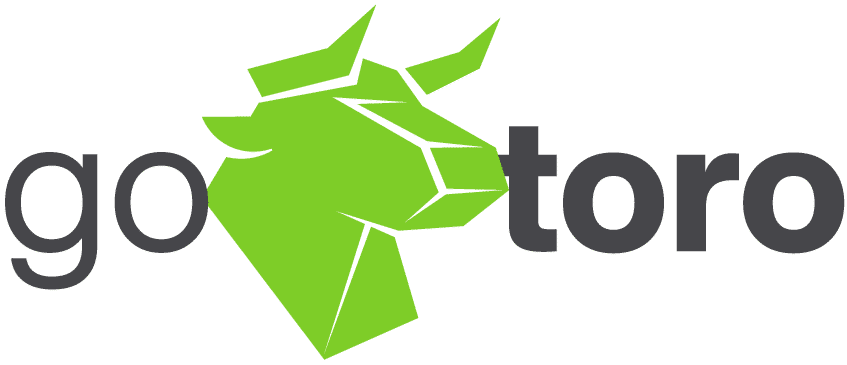In the evolving landscape of the workforce, the shift towards remote recruitment has become a pivotal aspect of modern hiring practices. This transition is fueled not only by the increasing prevalence of remote work but also by the broader digital transformation of the workplace. The concept of remote assessment has emerged as a crucial tool, allowing employers to evaluate potential candidates without geographical limitations. This progression, however, is not without its challenges. Assessing candidates remotely presents unique hurdles, such as ensuring effective communication and gauging cultural fit, but also offers unprecedented opportunities like access to a wider talent pool and cost savings in the recruitment process.
The Evolution of Remote Assessment in Recruitment

The evolution from traditional in-person interviews to remote assessment methods marks a significant shift in recruitment strategies. This transition has been accelerated by technological advancements and the necessity for businesses to adapt to a changing world, particularly in the wake of global events like the COVID-19 pandemic. In this new era, the need for innovation in remote recruitment strategies is more critical than ever. Employers are now exploring various tools and techniques, from virtual interviews to online skill assessments, to effectively evaluate candidates in a remote setting. This transformation requires a rethinking of traditional hiring processes and the adoption of new methodologies that can accurately assess a candidate’s suitability for a role, regardless of their physical location.
By integrating remote assessment practices, companies can not only streamline their hiring process but also ensure they remain competitive and adaptable in the rapidly changing landscape of work.
Diverse Techniques for Remote Candidate Assessment
Virtual Team Challenges

In the realm of remote candidate assessment, virtual team challenges stand out as an innovative method to gauge a candidate’s teamwork and problem-solving skills. By engaging candidates in collaborative online tasks, employers can observe how they interact in team settings, handle project management, and apply creative solutions to real-world problems. This technique not only tests technical skills but also highlights interpersonal dynamics crucial for remote work environments.
Comprehensive Communication Skill Evaluation
Remote settings place a premium on communication skills, making their assessment vital. In a remote candidate assessment, it’s important to evaluate a candidate’s ability to convey ideas effectively through written, verbal, and non-verbal channels. This includes their proficiency in writing clear emails, articulating thoughts during video calls, and their overall ability to maintain clear and consistent communication. Assessing these skills ensures that the candidate can thrive in a remote work setting where direct, face-to-face interactions are limited.
Utilizing Work Samples and References
Work samples and references are invaluable in remote candidate assessment for providing tangible evidence of a candidate’s capabilities and work ethic. Analyzing previous work allows employers to directly assess the quality and relevance of a candidate’s skills. Meanwhile, references offer insights into the candidate’s past performance and professional behavior. This approach helps in forming a well-rounded view of the candidate’s suitability for the role, beyond what is discernible through interviews and tests alone.
Paid Test Projects
In remote candidate assessment, paid test projects are a valuable tool. They involve short-term assignments that candidates complete for compensation. This approach provides a real-world scenario to evaluate practical skills and commitment. It allows employers to observe how candidates handle actual work tasks, manage time, and deliver results. This method goes beyond theoretical assessments, offering a glimpse into a candidate’s real working style and productivity.
Incorporating Skill-Assessment Tests

Skill-assessment tests play a crucial role in remote candidate assessment. These tests are designed to objectively measure a candidate’s competencies in specific areas relevant to the job. By customizing these tests to match job requirements, employers can accurately evaluate the technical or professional skills of candidates. These assessments ensure that the selection process is based on quantifiable data, making it fair and unbiased.
Blending Skills Tests with Video Interviews
Combining skills tests with video interviews creates a comprehensive framework for remote candidate assessment. This method blends the objective evaluation of technical abilities through skill tests with the subjective assessment of interpersonal skills through video interviews. This dual approach provides a holistic view of the candidate, assessing both their hard and soft skills. It enables employers to gauge not just what the candidate knows, but also how they communicate, react to questions, and present themselves in a professional setting.
Structured Behavioral Interviews
Structured behavioral interviews are a vital component of remote candidate assessment. These interviews involve asking candidates specific questions about their past experiences and behaviors in professional settings. The goal is to understand how they’ve handled various work-related situations in the past, which can be a reliable indicator of future performance. By focusing on concrete examples, employers can more accurately predict a candidate’s ability to meet the demands of the role and fit into the company culture.
Telephone Interviews for Initial Screening
Telephone interviews are an effective tool for initial screening in remote candidate assessment. They provide a quick and efficient way to evaluate a candidate’s communication skills, enthusiasm, and suitability for the role. These brief calls can help narrow down the candidate pool before committing to more in-depth assessments, saving time and resources for both the employer and candidates.
Leveraging Technology in Remote Assessment
In remote candidate assessment, technology plays a crucial role in streamlining the process and ensuring fairness. Advanced tools like AI-driven analytics can help in parsing large volumes of applications, video interviewing tools facilitate real-time interaction with candidates, and software solutions can manage and evaluate online tests. These technologies not only make the assessment process more efficient but also help in reducing biases, providing a more objective evaluation of candidates.
Overcoming Remote Assessment Challenges

Addressing common obstacles in remote candidate assessment is crucial for a successful hiring process. Technical issues can arise during remote interactions, so having a reliable tech setup and backup plans is important. Engaging candidates remotely requires innovative approaches to maintain their interest and motivation throughout the assessment process. Evaluating cultural fit remotely can be challenging, but it’s essential to use targeted questions and scenarios that reveal a candidate’s alignment with company values and work environment. Overcoming these challenges ensures a more effective and comprehensive remote assessment process.
Case Studies: Successful Remote Assessment Strategies
Dell, a global technology leader, exemplifies successful remote candidate assessment strategies. Several years ago, Dell announced its goal to operate at 50% remote capacity by 2020, illustrating a significant commitment to remote work. This ambition was part of their broader strategy, which included the creation of the “Connected Workplace” program. This program was not just a shift in location but a transformation in how Dell approached work, including the assessment and integration of remote candidates.
Zapier, on the other hand, was built from the ground up as a remote-first company. Their entire operational strategy revolves around remote work, making them a prime example of effective remote candidate assessment. Their success demonstrates the potential of remote work and assessment strategies in accessing diverse talent pools and establishing efficient workflows.
Both Dell and Zapier showcase how tailored remote work strategies and innovative assessment methods can lead to significant organizational success, setting an example for companies worldwide in the realm of remote candidate assessment.
In summary, adapting to remote candidate assessment is crucial in the contemporary recruitment landscape. This approach encompasses various techniques, from structured behavioral interviews to leveraging technology, each addressing specific aspects of candidate evaluation. Overcoming challenges such as technical issues, engagement, and cultural fit evaluation is key. The transition to remote assessment methods offers opportunities for a more diverse, efficient, and comprehensive recruitment process, aligning with the evolving dynamics of the modern workforce. If you’re seeking to onboard dependable remote candidates, consider embracing programmatic job advertising as it effortlessly streamlines your recruitment journey – request a demo today.


